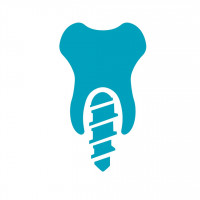Contraindications for Dental Implant Surgery

Strong 8k brings an ultra-HD IPTV experience to your living room and your pocket.
Dental implants have transformed tooth replacement, offering a durable and natural-looking solution. However, despite their many advantages, dental implants may not be suitable for everyone. Various health conditions and lifestyle factors can impact whether dental implants are safe and effective for an individual. Below are some of the most common contraindications for dental implant surgery to help patients make informed decisions.
What Are Contraindications for Dental Implant Surgery?
“Contraindications for dental implant surgery” refer to specific health conditions or factors that make the procedure unsuitable or risky for certain individuals. Examples include uncontrolled diabetes, severe bone loss, untreated gum disease, and heavy smoking, as well as recent radiation therapy in the jaw area or poor oral hygiene. These conditions can compromise the success of the implant or increase the risk of complications, making alternative treatments preferable in some cases.
Absolute Contraindications for Dental Implants (Systemic)
Absolute contraindications refer to conditions where dental implant surgery is generally avoided due to high risks, including serious complications or implant failure. These include:
- Severe Immune Disorders: Conditions that severely compromise the immune system.
- Uncontrolled Diabetes: Poorly managed diabetes impedes healing and increases infection risk.
- Active Cancer Treatment: Cancer treatments, especially chemotherapy, can inhibit healing and immune response.
- Recent Heart Attack or Stroke: These conditions increase the risk of complications during surgery.
- Advanced Bone Diseases: Diseases such as osteoporosis can reduce bone density, making implants difficult to support.
- Certain Blood Disorders: Conditions like haemophilia make surgery risky due to potential excessive bleeding.
In cases of absolute contraindications, dental implants are generally avoided, and alternative treatment options are recommended.
Medical History and Patient Safety
For any patient, taking a thorough medical history is essential to identify underlying health conditions that could impact surgery. It is crucial for the dentist to know the patient’s current medications to prevent potential drug interactions. In cases of uncertainty, consulting the patient’s physician is advised to ensure that all medical conditions are thoroughly evaluated.
Systemic Contraindications for Dental Implant Surgery
Specific systemic conditions can increase risks associated with dental implant surgery. These conditions require a careful evaluation:
- Immunosuppression: Weak immune systems can hinder healing and increase infection risk.
- Recent Myocardial Infarction or Stroke: Patients with a recent cardiac event are at higher risk for surgical complications.
- Blood Disorders: Conditions like haemophilia can lead to excessive bleeding, requiring careful management.
- Drug Abuse or Substance Abuse: Substance abuse can compromise health and healing ability.
- Psychiatric Disorders: Severe psychiatric conditions may interfere with treatment adherence and hygiene practices.
- Intravenous Bisphosphonate Therapy: These medications impact bone density and may increase the risk of implant failure.
Local Contraindications for Dental Implants
Local factors within the mouth can also pose risks in dental implant surgery:
- Parafunctional Habits: Habits like bruxism (teeth grinding) or clenching can impact implant success.
- Patient Motivation: Patients must be committed to maintaining oral hygiene for successful implant outcomes.
- Smoking: Smoking reduces blood flow to the gums and slows healing, increasing the chance of implant failure.
- Poor Oral Hygiene: Patients with poor oral hygiene may face infection risks post-surgery.
- Anatomic Limitations: Conditions like severe jawbone shrinkage may prevent secure implant placement without additional procedures.
Experienced implant dentists can sometimes work around these local contraindications but should inform patients about the risks and limitations. For example, smoking greatly reduces the success rate of dental implants, and habits like bruxism can sometimes be managed with appliances to protect the implant.
Additional Considerations Impacting Dental Implants
- Some additional medical and lifestyle factors that may influence the suitability of dental implants include:
- Uncontrolled Diabetes: Poorly managed diabetes impacts healing and can lead to infections, making implants risky.
- Autoimmune Disorders: Conditions like lupus can interfere with bone integration.
- Severe Bone Loss: Insufficient jawbone density may not support implants, though bone grafting can sometimes help.
- Radiation Therapy: Previous radiation in the jaw area reduces blood supply, increasing the risk of implant failure.
- Pregnancy: Due to hormonal changes and surgical stress, most dentists recommend waiting until after pregnancy.
- Age and Developmental Concerns: Dental implants are generally not advised for children whose jaws are still developing.
- Chronic Periodontal Disease: Untreated gum disease affects the gums and bones, increasing the chance of implant failure.
Dental implants offer an effective and long-lasting solution for tooth replacement, but they may not be suitable for everyone. A comprehensive medical evaluation and consultation with a qualified implantologist are essential to determine if implants are the right choice. With advances in dental technology, alternative options are available for patients facing contraindications. Always consult with an experienced implantologist or dentist to explore the most appropriate options tailored to your health and lifestyle.
Note: IndiBlogHub features both user-submitted and editorial content. We do not verify third-party contributions. Read our Disclaimer and Privacy Policyfor details.


